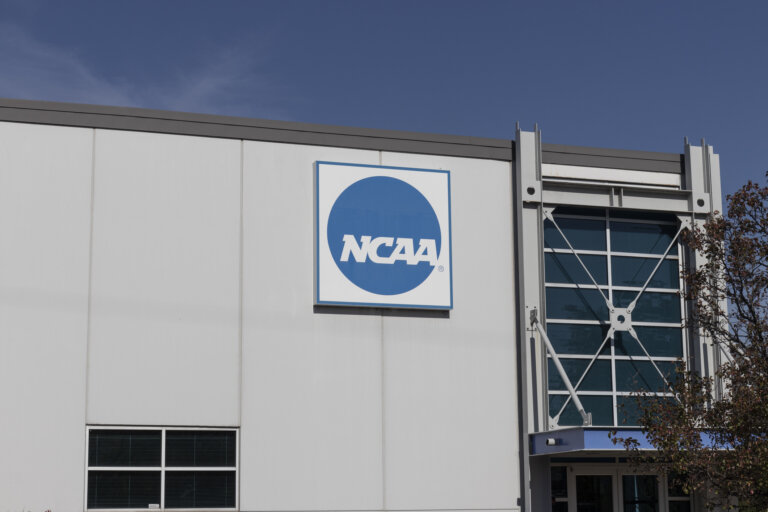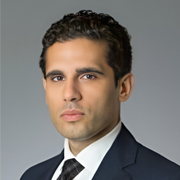In a case that could potentially redefine the landscape of collegiate athletics, the National Collegiate Athletic Association (“NCAA”) faces a significant antitrust legal challenge. Twin brothers have filed a lawsuit against the NCAA, alleging that it restricted their ability to play college basketball at Chicago State University.
The case, Bewley, et al. v. NCAA, No. 23-cv-15570-RWG (N.D. Ill.), not only highlights plaintiffs’ grievances but also challenges the broader framework of amateurism in college sports.
The Backdrop
The Bewley brothers, both 19 years old, are standout basketball prospects who attended the Overtime Elite Academy (“OTE”) in Georgia. After graduating, they received athletic scholarships to play at Chicago State University, part of the NCAA’s Division I. However, their journey to collegiate basketball was halted by the NCAA’s decision to deny them amateur status.
NCAA’s Stance
The NCAA’s denial is rooted in its assessment that the compensation that the Bewley’s received at OTE for their name, image, and likeness (“NIL”) exceeded “actual and necessary” expenses. The NCAA also contends that the brothers competed for a team that considered itself professional, thereby violating its rules on amateurism.
The Legal Challenge: Violation of Antitrust Laws
At the heart of the lawsuit is the claim that the NCAA’s actions constitute a violation of federal antitrust laws. The plaintiffs allege that the NCAA’s rules unreasonably restrain trade and constitute an unlawful group boycott or refusal to deal. Specifically, they accuse the NCAA of making an arbitrary determination regarding their compensation and effectively imposing a wage cap on aspiring athletes.
Adding to the controversy, the lawsuit alleges that other athletes from OTE, including, without limitation, their former classmates and teammates, were granted eligibility to play college basketball. This inconsistency in the application of rules forms a critical aspect of the plaintiffs’ argument against the NCAA.
Implications for Collegiate Athletics
The case against the NCAA goes beyond the individual grievances of the Bewley brothers. It challenges the very concept of amateurism that has long been a cornerstone of the NCAA’s governance of collegiate athletics. The plaintiffs’ argument suggests that the NCAA’s current framework of rules around athlete compensation and NIL rights is outdated and in conflict with modern legal and economic realities.
Shift in NCAA Policies
Notably, the NCAA had loosened some of its restrictions in 2021, allowing athletes to profit from third-party advertising and merchandising deals. However, the lawsuit argues that these changes are insufficient and that the NCAA’s broader policies still unlawfully limit athletes’ rights and potential earnings.
A major reason for this shift was the groundbreaking Supreme Court decision in N.C.A.A. v. Alston, 141 S. Ct. 2141 (2021), which dealt a blow to athletics leagues and their attempts to argue that they are immune from antitrust laws. That argument is less persuasive. The Supreme Court in a thorough opinion sent warnings to most major athletics leagues that they are not immune from antitrust laws. Ultimately, athletics leagues are comprised of competitors who must face litigation when agreeing to impose anticompetitive rules and agreements.
Relief Sought by the Plaintiffs
The Bewley brothers are seeking not only an injunction against the NCAA’s “unlawful and anticompetitive regulations,” but also damages for lost endorsement opportunities and potential harm to their prospects in professional basketball drafts. Their case underscores the need for a reevaluation of NCAA policies in the evolving landscape of sports, media, and commerce.
Moreover, this lawsuit is part of a growing number of legal challenges facing the NCAA regarding its compensation restrictions for student-athletes. These cases collectively signify a shift in the legal and public perception of the rights of student-athletes and the responsibilities of governing bodies, such as the NCAA.
The Takeaway
The Bewleys’ case against the NCAA represents a critical juncture in the ongoing debate over the rights of student-athletes and the definition of amateurism in college sports. The outcome of this case could have far-reaching consequences, potentially ushering in a new era of athlete rights and NCAA governance. Our firm will continue monitoring developments, as the future of collegiate sports may well be reshaped. Indeed, Nematzadeh PLLC has been at the forefront of leading antitrust class actions on behalf of businesses and individuals that have been boycotted from relevant antitrust markets due to anticompetitive activity by athletics leagues and competitors. You can reach Nematzadeh PLLC by calling (646) 799-6729 or emailing lawyer@nematlawyers.com for a confidential, free consultation.

